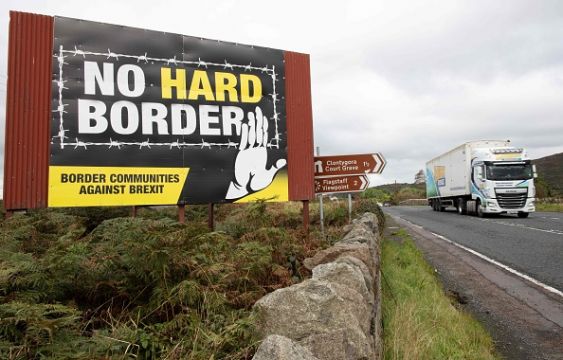A united Ireland could emerge within the next 25 years given the “disaster” created by Boris Johnson’s Brexit deal, a former British cabinet minister has predicted.
David Blunkett said the European single market “effectively continues” in Northern Ireland under the terms of the agreement reached between the UK and the EU, with a border in the Irish Sea.
This creates “contradictions” in Northern Ireland’s relationship with the EU and the rest of Great Britain, said Lord Blunkett as he warned this bodes “extremely ill” for the future.
Northern Ireland is following the rules of the EU single market to avoid a hard Irish border and has shifted checks on food standards to Irish Sea ports.
Goods arriving from Great Britain are among those subject to checks under the agreement made by British prime minister Mr Johnson with the EU.
Lord Blunkett, speaking during a debate in the UK House of Lords on the future arrangement between the UK and EU, said: “It proposes a very different picture for the future which will be exploited by those in the Scottish National Party, who seek to use every opportunity to reopen and re-engage with the destruction of the United Kingdom.
“I believe that this deal actually accelerates the possibility within the next 25 years of a united island of Ireland.
“It’s a century since the 1921 legislation as part of the agreement on partition.

“A century later, we’re faced with the contradictions that exist in terms of Northern Ireland and its relationship with the European Union, and the contradictions that therefore are accorded to its relationship with the rest of Great Britain.
“All of these things bode extremely ill for the future.”
Lord Blunkett, who served as the UK's home secretary under Tony Blair, also warned the UK’s withdrawal from EU security organisations will be “regretted for a very long time to come”.
Concluding his speech, the Labour peer said: “To top it all we replaced the Brussels bureaucracy, so used in the Brexit arguments, with the bureaucracy we see today on our borders in terms of distributions, hold up and diminution of trade.
“It’s a disaster.”







